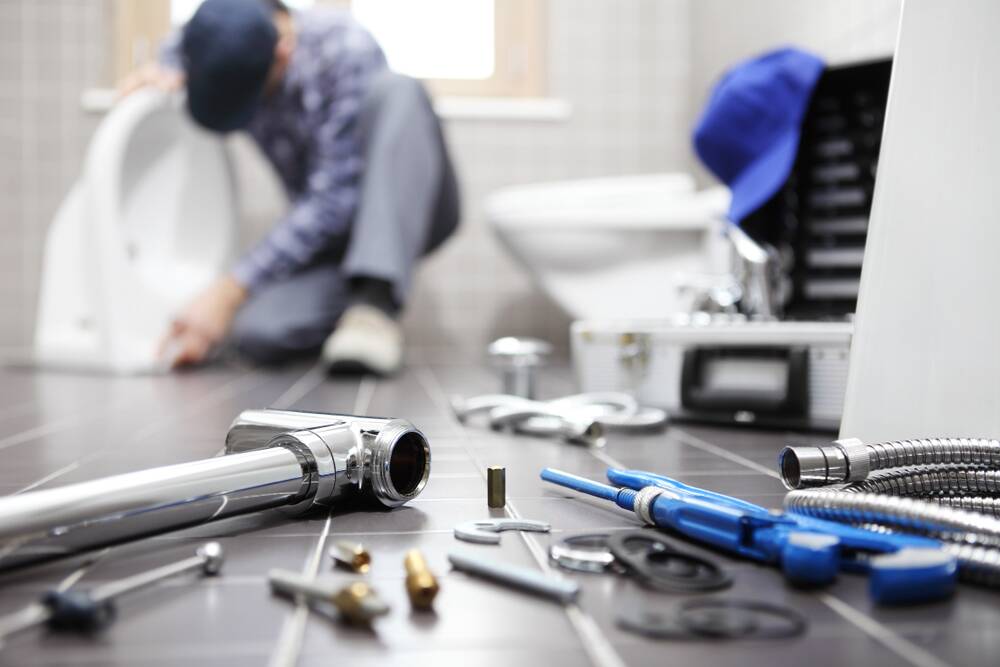6 toilet care and maintenance tips for home owners

This is branded content.
No matter how luxurious or high-end your plumbing fixtures are, they will always require regular care and maintenance like everything else in your home. Toilet troubles can strike anytime, and the lack of maintenance will only lead to bigger, unfixable issues.
To have a worry-free bathroom experience day and night, it's best to stay on top of your toilet maintenance.
Fortunately, toilet clogs and leaks can be prevented.
You can begin by gathering helpful tips on what to do. Whether you do it yourself or hire a professional plumber to fix your toilet issues, it pays to know the proper steps.
Here are some of them you can start applying in your home.
1. Be careful with what you flush
One of the common mistakes most homeowners make is to throw and flush anything in their toilet. The thing is that your toilet bowl doesn't work like a garbage bin in more ways than one.
Your toilet is built only to get rid of rubbish like dirty water, urine, and manure. In some cases, biodegradable toilet paper can be flushed too. However, any other things should be disposed of in your bathroom's waste bin.
Don't be fooled by commercial wipes that advertise themselves as flushable.
While they may seem true, it's better to avoid the risk of having a clogged toilet. Thick wads of compacted paper will affect your septic tank and pipes, causing severe back-ups and blockages.
As much as possible, throw any waste into a dedicated bin. Otherwise, the water in the bowl will take you by surprise when it starts rising.
2. Check leaks regularly
There are many places where your toilet can have leaks. If you want to ensure the quality and condition of your toilet bowl, you should always keep an eye out for them.
Leaks can cause a series of problems, from making floors dangerous to walk on to spreading bacteria and mould growth.
Make it routine to check your toilet for strange outflows, drips, or staining on other surfaces. Once you spot them, you can apply sealants for quick fixes.
Complex issues, like breaks in the plumbing, will warrant a call with your trusted plumbers. It's always best to leave these things to experts if you're not sure what to look for or what to do.
3. Vacuum and scrub
Bathroom surfaces usually combine both liquid and solid debris.
These may consist of accumulated dust, hair, or other stuff. One of the best ways to clean such surfaces is to use a vacuum cleaner and broom. Remove all the solids before wetting the floor for scrubbing and mopping.
Then, vacuum all flat surfaces before you use soap and cleaning solutions. This ensures they can seep into the material and take out hardier stains.
Give your bathroom the hotel treatment and reap the benefits of having a squeaky-clean toilet every day.
4. Avoid using harsh toilet cleaners
This tip is a no-brainer, but many homeowners forget this. A lot of strong cleaners are marketed as eliminating bacteria and dirt on toilets to the utmost degree.
While some of them can back up that claim, harsh chemicals will only harm the quality of your pipes and toilet fixtures.
The corrosive chemicals in these cleaners can easily cause leaks when used regularly. Not to mention, many of them pollute the environment and are harmful to humans.
To clean your toilet effectively, stick to safer and milder toilet cleaners instead. Always do your research on what to buy for regular use. You can check out what experts recommend to stay on the safe side.
5. Consider using water softeners
A toilet's and plumbing system's performance is affected by water hardness. The pipes and fixtures get clogged by mineral build-up, reducing their efficiency.
When it gets bad enough, you can expect backflows and dirty water every time you open your taps.
To combat this, consider using a water softener in your toilet for its upkeep. This keeps its overall system safe from limescale. Check out the latest catalogues to find great water softeners, then talk to your plumber to get them installed.
6. Hire a plumber for maintenance checks
Lastly, have a licensed plumber perform regular maintenance visits. Despite doing toilet maintenance tasks yourself, nothing beats the expertise of reputable plumbers.
They can catch problems you missed and keep them from costing you a lot in the long run. Ideally, you should have them check on your toilets once a year.
Toilets need some love
The only way for you and your family to enjoy your toilet for as long as possible is to take good care of it. You can avoid clogs, leaks, and broken toilet fixtures with the tips above.
If things get out of hand, you can always trust the experts to help.


